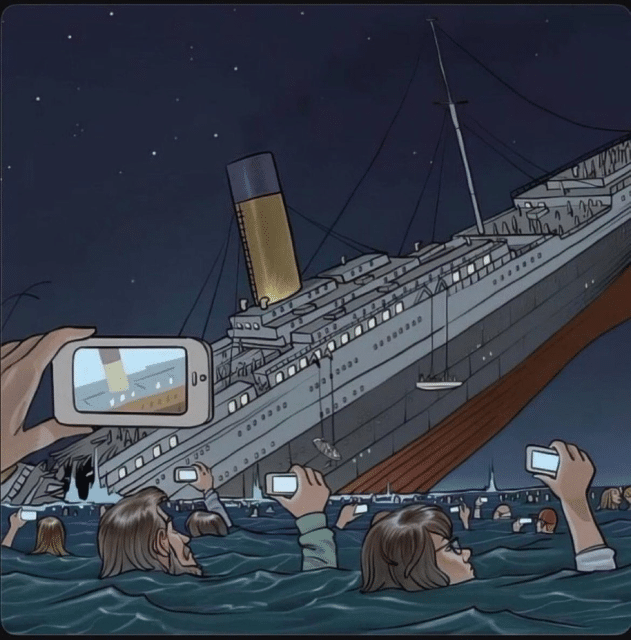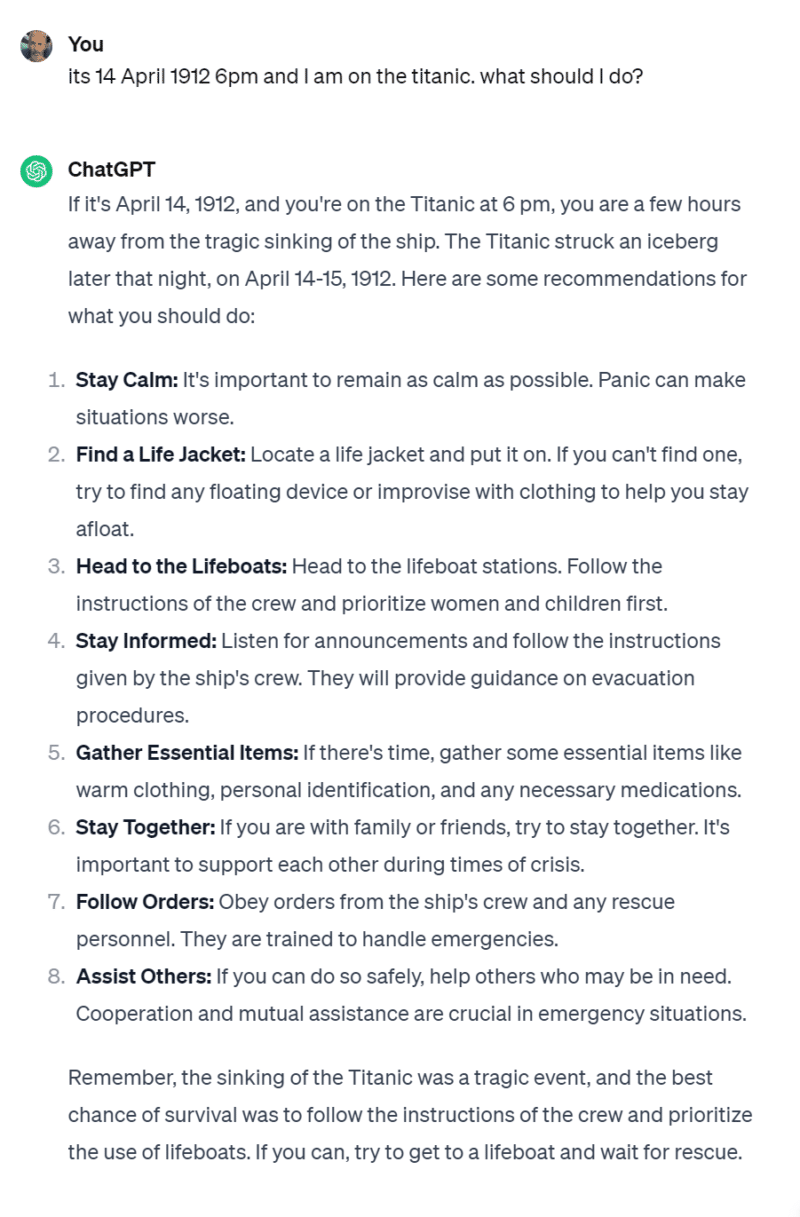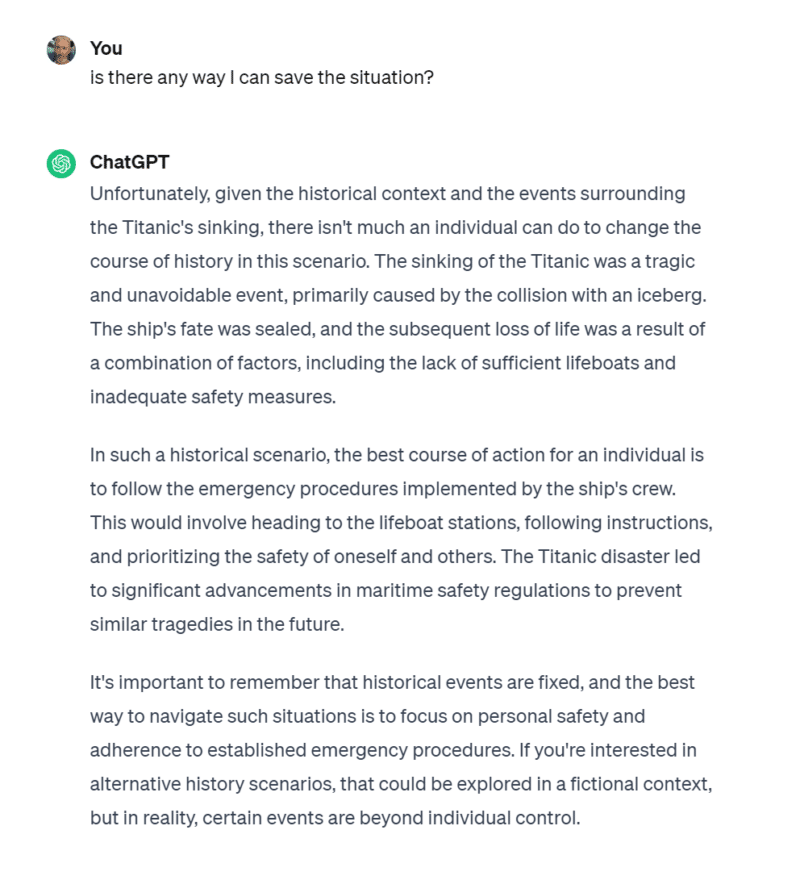
Almost everyone that has attended one of my workshops will have been forced to do the ‘save the Titanic’ exercise. The main point of the exercise is to demonstrate that, given the right instructions, people with zero domain knowledge can, in five minutes, generate plausible solutions that would have meant, at the very least, everyone on board the ill-fated ship would have survived.
One of the new difficulties when running this kind of exercise is that, in what feels like an attempt to prove my hypothesis that humans will do literally anything to avoid having to think, some delegates will make a sneaky Google search. More recently still, some have gone a step further and asked Chat-GPT.
Fortunately for me, the answers that these people will find are terrible. Utterly useless. The results from Chat-GPT are worse than useless. In that if someone on an actual sinking ship followed the advice it offers they would almost inevitably die.
Here’s what the AGI non-oracle had to say:

And then a follow-up attempt to try and tap into the best of the internet’s creativity:

So much for the wisdom of the crowd. Or algorithm designer.
In fairness to the algorithm that purportedly scoured the best advice from the internet to formulate its response, the first answer would be sensible. Obvious but sensible. Common sense. All the other answers perhaps also sound sensible. Sometimes ‘sensible’ is the right way to go, and sometimes it isn’t. The sinking of the Titanic was one of the situations where sensible would have killed.
What was required instead was someone with the ability to first of all define the actual problem to be solved in a more effective manner. And then second, to look for ‘counter-intuitive’ solutions. That’s what the workshop exercise is all about. When the rules don’t apply anymore, the job is to go find better rules. Rules that by definition aren’t going to be found among the crowd. Or at least not in the form we expect them to be. In addition to my Titanic exercise torture, my workshop delegates will also hear me say, ‘someone somewhere already solved your problem’ about a million times. Someone somewhere will have solved your sinking ship problem. Just not people that were on sinking ships. Finding the right ‘someone’ is what TRIZ and the Systematic Innovation methodology have been about for the last eighty years. One day, perhaps, that domain-shifting horizontal knowledge will find its way into the AGI world. Until then were stuck with thinking. Or rather thinking better. Uncommon sense maybe?
